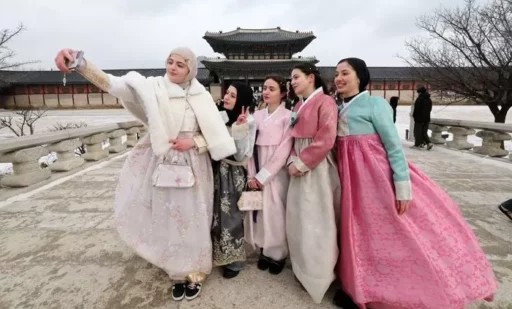"Did K-Demon Hunters Just Fill Foreign Pockets?"… The Reality of '0' Global Top 50 Intellectual Property Rights
The Netflix animated film K-Pop Demon Hunters (케데헌) and other content are gaining immense popularity worldwide. As proof of this popularity, the OST of K-Demon Hunters has recently topped both the Billboard Hot 100 in the United States and the Official Singles Chart in the United Kingdom.
While expectations grew that this would translate into substantial profits for the Republic of Korea, it was later revealed that most of the actual revenue is concentrated in foreign companies. This has sparked voices highlighting the sentiment that "only foreign capital gains profit from content that utilizes Korean culture."

According to a report titled 'New Growth (10) Strategies for the Industrialization of Intellectual Property' released by the Korean Chamber of Commerce and Industry on the 17th, Korea was not included in the list of the 'Global Top 50 Licensees' which indicates the industrialization capabilities of global intellectual property rights.
The list features 32 companies from the United States, 7 from Japan, 2 each from China and France, and one each from Sweden, the UK, Canada, Italy, Germany, Finland, and Denmark. Notably, it was analyzed that the 32 U.S. firms alone generated profits of approximately 338 trillion won.
Such analysis has further fueled the controversy around the revenue structure of K-Demon Hunters. Some have pointed out the notion that "Korea provides the talent, while foreigners make the money."
However, there is another perspective. Some argue that it is important to consider not just the direct revenue from content, but also the derivative effects, such as attracting tourism.
In fact, following the success of K-Demon Hunters, the number of foreign tourists wanting to experience K-culture as depicted in the movie has increased.
According to data released by domestic inbound tourism platform Creatrip on the 31st of last month, foreign tourist bookings and transaction amounts significantly increased from June 20 to July 19, the month following the release of K-Demon Hunters.
Specifically, transactions for Hanbok experiences rose by 30% compared to the previous month, and the relatively unfamiliar 'sesin' (traditional Korean bathing) experience gained popularity, resulting in an 84% surge in transactions for public bathhouses. Visits to Korean meat culture experiences, including Korean BBQ and galbi, also increased, with transaction amounts soaring by up to four times.

Thus, K-Demon Hunters is serving as a facilitator, not just as simple content, but in attracting overseas fandoms to visit Korea and energizing the tourism industry.
In this context, some netizens have reacted by saying, "It's enough to promote without spending money," "Thanks to K-Demon Hunters, foreigners are coming to Korea," and "Isn't it a good thing for Korea to be known?"
Im Hye-min, the CEO of Creatrip, stated, "The Korean elements in K-Demon Hunters have led to actual bookings for travel products," and "We can confirm that the interest of foreign tourists is spreading to all aspects of everyday Korean culture."
Meanwhile, K-Demon Hunters is an animated film where the K-Pop idol group HuntRix sings to defeat evil spirits and save the world, and it has been loved by global fans to the extent that it is being compared to Korea's 'Frozen.'

Image source: Netflix's 'K-Pop Demon Hunters', supplementary images for understanding the article / News1


